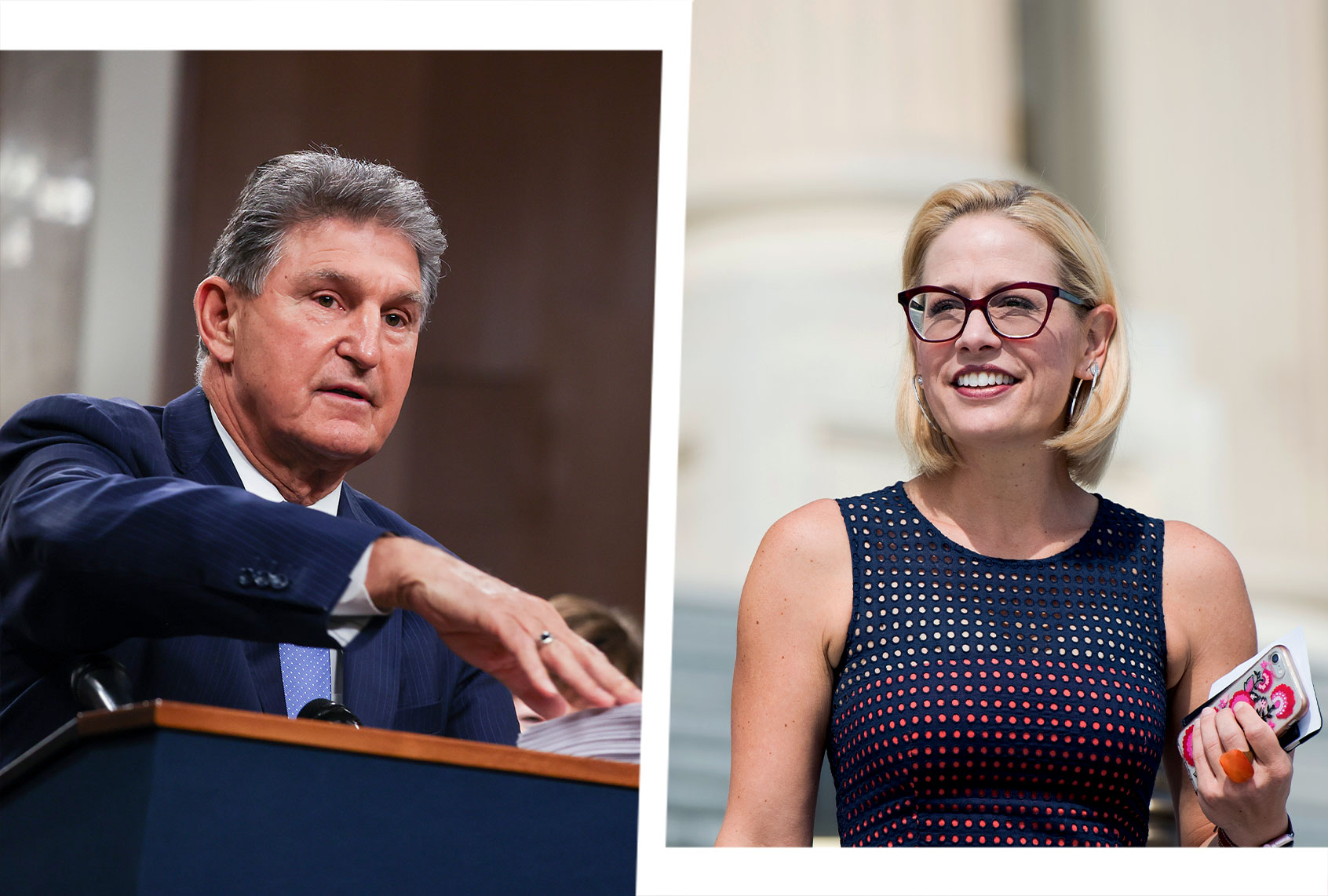So far during Joe Biden’s brief presidency, moderate Democrats in Congress have been triumphant over their more progressive colleagues during the fight for pandemic relief. What the long-term political and social costs of that victory may be remains to be seen.
Eligibility for stimulus checks was tightened in the administration’s mammoth $1.9 trillion proposal, slicing out a chunk of upper-middle-income earners who in recent years have increasingly become Democratic voters. In a far more significant development, eight Senate Democrats on Friday bucked their party to shoot down the left’s flagship policy to raise the national minimum wage to $15 an hour.
The 42-58 rejection — with all 50 Republicans joining those eight Democrats — was a likely illustration of something far more problematic for the Biden agenda than a single policy initiative. It’s hard to imagine how Democrats can ever muster the votes to dump the Senate filibuster, a procedural change that would break through the dam of GOP obstruction and allow the upper chamber to pass any legislation with exactly zero Republicans. (That of course presumes a tie-breaking vote by Vice President Kamala Harris, the veep’s sole method of exercising political power.)
Democratic opponents to the minimum wage boost included two close Biden allies from his home state, Chris Coons and Tom Carper of Delaware, along with moderates Jon Tester of Montana, Jeanne Shaheen of New Hampshire, Kyrsten Sinema of Arizona and Maggie Hassan of New Hampshire. Sen. Angus King, a Maine independent who caucuses with Democrats, also opposed it.
All of them voted alongside Sen. Joe Manchin of West Virginia, who has been called the unofficial majority leader based on his outsize influence in an evenly-split Senate. Asked again by reporters about the filibuster this week, Manchin literally shouted his opposition to ending the traditional requirement for a 60-vote threshold to bring bills to the floor.
The wage increase had already been stripped from the coronavirus aid bill by the Senate parliamentarian, so it wasn’t expected to be included in the final version of the legislation. Still, Sen. Bernie Sanders, I-Vt., and a faction of liberal senators chose to force a vote they knew they would lose. In the process, they exposed more resistance to the wage hike — a major talking point in last year’s Democratic primary campaign — than was previously visible. That outcome could foreshadow the sort of rebellion that progressives, and even the president, may face if they force senators to take an official stance on the future of the filibuster.
For example, although Hassan said she has “long supported raising the minimum wage to $12 an hour” and is “open to $15 an hour,” the measure failed to garner her support.
The filibuster’s 60-vote threshold is beginning to resemble a do-or-die issue for the Democratic left. Not only because the party holds only the narrowest of margins in both chambers — with a midterm election roughly 20 months away — but because Senate Republicans are positioned to obstruction virtually every aspect of the new president’s agenda if they choose all-out partisan warfare.
To be sure, pressure has only increased on Biden since he took office to nix the filibuster. Just this week, both of Minnesota’s more-or-less moderate Democratic senators — Amy Klobuchar and Tina Smith — revealed their support for abolishing the provision. And Sen. Jon Tester of Montana, also a moderate from a state Donald Trump won twice, told the Washington Post he could be convinced to alter or dump the filibuster. Some experts in legislative fine print have suggested that the rule could be significantly changed while technically keeping it in place, effectively gutting its power.
Biden has left his options open and remained noncommittal on the filibuster. Coons has said he is leery of abolishing it. And to this point, Manchin and Sinema are hard nos.
Joe Biden’s position is not entirely clear, and will almost certainly hinge on how much of his agenda gets bogged down in the Senate. The impending question may be whether a legislative graveyard presided over by “Grim Reaper” Mitch McConnell (even as minority leader), coupled with pressure from Democratic colleagues, activists and voters, could persuade Manchin to reconsider.
When the 2022 midterms arrive, Manchin’s intransigence on the filibuster could earn him one of two titles: Will he be the Democrats’ worst enemy, blamed for blocking a progressive policy agenda that could fuel future victories? Or will he be their savior for preserving the minority’s power, should Democrats lose the Senate?

